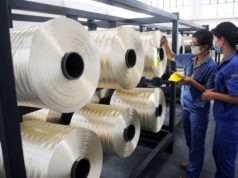Reducing carbon emissions. Preventing chronic diseases. Educating 50 million young refugees.
Ambitious thinkers and doers take note: Anyone with a bold idea for making progress on one of these daunting global problems has until Jan. 20, 2017 to submit their solution to Solve.
Solve, an initiative launched by the Office of the President, is actively soliciting applications from anyone with an innovative solution to these three challenges, with the potential to have a wide impact.
Solve is actively convening a community to support creative problem-solvers in their efforts to test, pilot, and implement their ideas in the realms of health care, education, climate and energy, and expanding economic opportunity.
But the first step is identifying brilliant new approaches to tackling thorny problems. Using its open innovation platform, Solve aims to crowdsource solutions from around the world, and from its own backyard in Cambridge, Massachusetts.
Those who submit applications to the refugee education, carbon contribution, and chronic disease challenges will have their solutions reviewed by panels composed of expert judges from MIT and beyond. Ian Waitz, dean of the School of Engineering, serves as one of the judges in the carbon challenge.
“A student or anyone who has a pretty well-developed idea for a social venture or a technology, where the missing element is connecting up with a community of people deeply engaged with addressing that challenge, should consider applying to Solve,” he says.
Waitz says he and his fellow judges will be weighing proposals on a range of criteria, but especially feasibility. “We’ll be looking to see if the applicants are at a stage where bringing their idea to this community could be catalytic. We’d also like to see articulated the potential for some very well-defined forward steps on a specific problem, that would come out of this process of bringing all these committed people together.”
The finalists who advance will present their ideas at a pitch event, Solve at UN, hosted by the United Nations on March 7, 2017 in New York City. The winners in each category will then become “Solvers,” connected to a community of advisors and potential partners from across academia, industry, and the nonprofit sector convened by Solve around each challenge. These Solvers will be announced at the Solve at MIT flagship event to be held on the MIT campus from May 8 to 10, 2017.
“The real goal – is to create a marketplace bringing together people with the best solutions and cross-sector leaders with the resources to fund, pilot, and implement those solutions,” says Alex Amouyel, executive director of Solve.
Between the March and May events, the Solve team will work closely with the challenge winners to broker partnerships to turn their ideas into reality.
“Solve at MIT in May will be a chance for Solvers and Solve members to workshop and potentially announce their partnerships, which would allow Solvers’ ideas to be piloted and implemented,” Amouyel says.
These upcoming events follow a well-attended first-round pitch showcase in September, Solve at HUBweek. Kathryn Zaniboni, a full-time volunteer in a refugee camp in Bulgaria, was selected during the event as a finalist in the first phase of the refugee education challenge.
Her project “Team Up to Teach” aims to build an online platform that connects teachers with volunteers in refugee camps, to share best practices and provide learning opportunities for youth who lack access to conventional schools.
“It’s been an exciting experience for me,” Zaniboni says. “I’ve been given a wonderful opportunity to play this out and see where it goes. Beyond my day-to-day work in the refugee camps, I have a broader purpose on how to solve this problem of children being out of school. Solve has given me this validation that what I proposed is touching on something important.”
If she advances, Zaniboni says she looks forward to being introduced to mentors in the field of platform design, for example. But just participating in the process thus far has generated useful connections and productive conversations with other educators and organizations working with refugee communities.
“After the event in September, I walked away with a lot of enthusiasm, energy, and a big stack of business cards,” she says. “You’ve got to put your nose to the grindstone and ask a lot of different questions and talk to as many different people as you can.”
Kevin Kung was selected as a Solver in September in one of the carbon challenges. Kung, a PhD candidate in biological engineering at MIT, researches the thermochemical conversion of biomass. His project, Safi Sarvi, produces carbon-sequestering fertilizer made from organic waste, helping small farmers improve their crop yields while fighting climate change.
Kung says that participating in Solve came at the right time for his venture. He and his colleagues already had a proven technical solution that they were piloting in a community in Kenya, but they were thinking about how to move forward.
“We were in the stage where we were thinking of how to connect with some larger organizations,” he says. “How do we scale to help others, to become a sustainable business and have more impact?”
Kung says participating in September’s pitch event led to several conversations with audience members about possible partnerships, yielding prospects for grant funding and industry-specific collaborations on soil agronomy. “So far, the concrete benefits have mostly been in terms of the people we’ve met who are interested in working with us, to potentially replicate what we’ve done in other places.”
“Solve provided the ideal venue for us to communicate our vision and get feedback,” he says. “The judges were very well-informed and asked insightful questions that also helped us focus our technical solutions, and helped us verbalize our product’s benefits more effectively.”
Amouyel says the next round of Solve will provide Solvers with similar opportunities, plus an even wider range of connections. “By May we plan to have a full portfolio of Solve community members — leaders in their fields who will advise and support Solvers to implement their solutions in a variety of ways beyond just providing funding. That could be technical support, providing office space, or partnering on a long-term implementation strategy.”
Those interested in submitting solutions to Solve’s refugee education, carbon contributions, and chronic diseases challenges can apply on its open innovation platform by Jan. 20, 2017 at solvecolab.mit.edu, for a chance to be selected and pitch at the United Nations on March 7, 2017.






